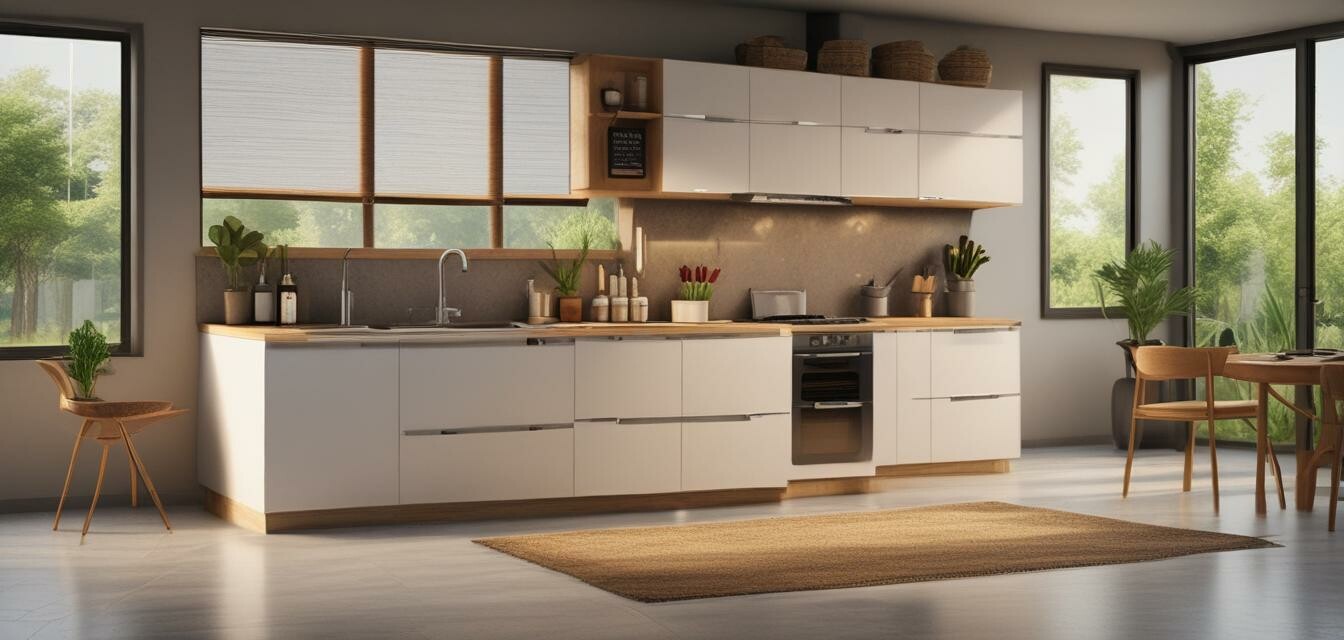
The Role of Technology in Sustainable Kitchens
Key Takeaways
- Emerging technologies are reshaping kitchens to be more sustainable.
- Smart appliances can help reduce energy consumption and enhance efficiency.
- Energy management systems play a crucial role in monitoring and optimizing resource usage.
- Integration of eco-friendly materials is essential for creating sustainable kitchen environments.
- Staying informed about trends in kitchen technology can lead to better purchasing decisions.
With a growing emphasis on sustainability, technology is paving the way for more eco-friendly kitchens. From smart appliances that conserve energy to innovative materials that reduce waste, the kitchen of the future is not just about aesthetics; it's about being conscious of our impact on the environment. In this article, we will explore how technology is transforming traditional kitchens into sustainable spaces.
Understanding Sustainable Kitchens
A sustainable kitchen focuses on minimizing environmental impact through efficient design, resource management, and the use of eco-friendly materials. By incorporating modern technologies, homeowners can achieve a harmonious balance between functionality and sustainability.
Key Features of Sustainable Kitchens
| Feature | Description |
|---|---|
| Energy-efficient appliances | Devices that consume less power, reducing overall energy use. |
| Water-saving fixtures | Faucets and appliances designed to minimize water wastage. |
| Smart technology | Devices that can be controlled remotely and optimize performance. |
| Eco-friendly materials | Recycled, renewable, or responsibly sourced materials used in kitchen design. |
The Impact of Smart Appliances
Smart appliances are revolutionizing how we manage our kitchens. They provide advanced features that contribute to energy efficiency, convenience, and sustainability. Here are some key benefits of incorporating smart appliances:
- Remote monitoring and control to reduce energy consumption during peak times.
- Automated alerts for maintenance and energy usage stats.
- Integration with home energy management systems for consolidated control.
Examples of Smart Technology in Kitchens
| Appliance | Functionality |
|---|---|
| Smart refrigerators | Track inventory, suggest recipes, and monitor energy usage. |
| Smart ovens | Enable remote cooking, monitor temperatures, and suggest cooking times. |
| Smart dishwashers | Use sensors to determine load size and adjust water usage accordingly. |
Energy Management Systems
Energy management systems are crucial for tracking and optimizing resource consumption in the kitchen. These systems can provide data on energy usage patterns, allowing for informed decisions about how to reduce consumption and waste.
Benefits of Energy Management Systems
- Identification of energy waste hotspots in the kitchen.
- Real-time data to make adjustments for improved efficiency.
- Comparative analysis of energy consumption over time.
Innovative Materials for Sustainable Kitchens
Using eco-friendly materials is essential for building sustainable kitchens. Innovative materials can not only enhance the aesthetics of the kitchen but also significantly reduce environmental impact.
Types of Eco-Friendly Materials
| Material | Benefits |
|---|---|
| Bamboo | Fast-growing, renewable, and naturally antibacterial. |
| Recycled glass | Reduces landfill waste and provides a unique aesthetic. |
| Cork | Biodegradable, renewable, and provides excellent insulation. |
Staying Informed on Kitchen Trends
Being aware of the latest trends in kitchen technology will not only inform your purchasing decisions but also inspire you to make changes that align with sustainable practices. The eco-friendly kitchenware industry continuously evolves, and keeping an eye on new product releases and emerging technologies is essential.
Where to Find Information
- Eco-Friendly Kitchen Blog - Stay updated on trends and news in kitchenware.
- Energy-efficient appliances - Explore smarter ways to save energy.
- Bamboo kitchenware - Discover how bamboo products contribute to sustainable kitchens.
- Compostable kitchen tools - Learn about eco-friendly alternatives to plastic.
- Recycled glass dinnerware - Find beautiful products that are kind to the environment.
Tips for Creating a Sustainable Kitchen
- Start by auditing your current appliances and replace energy hogs.
- Incorporate natural and recycled materials in your kitchen design.
- Utilize meal planning and prep technology to reduce food waste.
- Consider introducing small smart devices that enhance energy management.
Pros
- Promotes energy efficiency and sustainability.
- Reduces long-term costs through energy conservation.
- Enhances kitchen functionality with advanced technology.
Cons
- Initial investment in smart technologies can be high.
- Technology can be complex to manage for some users.
- Dependence on technology may reduce traditional cooking skills.
As we embrace a more sustainable lifestyle, the role of technology in our kitchens becomes increasingly important. By leveraging smart appliances, energy management systems, and innovative materials, we can work towards a more eco-friendly future. Stay informed and make choices that not only enhance your kitchen's efficiency but also contribute to a healthier planet.


